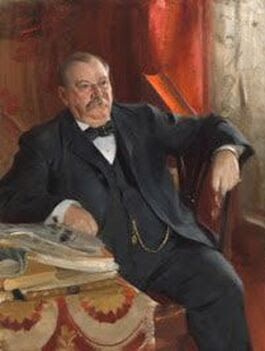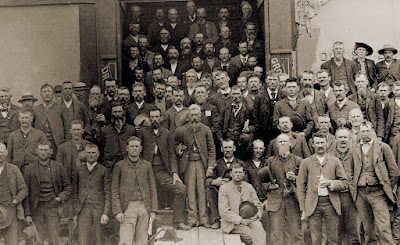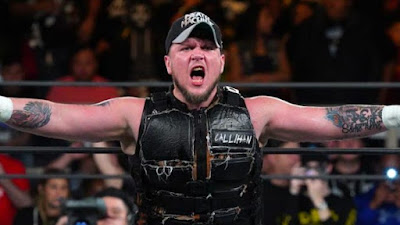The Election Of 1892: Grover Cleveland vs. Benjamin Harrison vs. James B. Weaver
Intro: Hello and welcome to another edition to the presidential election series as I'll be discussing the election of 1892, it's a three way race for the presidency as incumbent Benjamin Harrison takes on his old rival, Grover Cleveland and the Populist Party's own James B. Weaver...let's get into it.
But perhaps the biggest blow to Benjamin Harrison occurred in October of 1892 when his beloved wife, Caroline had died from tuberculosis at the age of 60 right in the middle of the election which led to much of the campaigning coming to a temporary halt.
Harrison's Presidential Woes
The presidency of Benjamin Harrison in the previous four years were marked with issues both at home and abroad that made the incumbent president question if he should run for re-election.
In terms of problems occurring in the U.S., Harrison's administration saw a large amount of federal spending due to the economy being in such great shape under his predecessor; This spending coupled with the passing of a tariff that saw the prices of imported goods go up and the enactment of the Sherman Sliver Purchase Act which focused on the increase of money supported by Sliver led to America's economy being in a very shaky situation come election day.
A major event that occurred under the Harrison administration was the intervention and killing of Native Americans in December of 1890.
Known as 'The Wounded Knee Massacre' U.S. troops were sent to an area of land that would be South Dakota with many of these soldiers killing around 146-150 Lakota natives; Harrison's view on Native Americans were to assimilate them into western society or more specific white society which was popular to some at the time but a horribly outdated idea today.
As this was occurring under his administration, President Harrison dealt with international matters regarding the overthrowing Hawaiian monarch, Queen Lili'uokalani and the annexation of the island itself while also dealing with disputes regarding fishing rights between the U.S., Canada and Britain and even dealt with a crisis involving the Chilean government which was thankfully resolved.
So, things haven't been smooth sailing for the incumbent president, but things especially get messy as it relates to his vice president Levi Morton.
Finding A New VP
While his record on the economy and international matters are spotty at best, Benjamin Harrison did do a few good things like modernizing and strengthening the U.S. Navy, signing into law the Land Revision Act of 1891 which opened the door to conservation work for national forests and passing the Sherman Anti-Trust Act which was designed to crack down on the influence many monopolies had when it came to competition and trade in the marketplace.
Harrison was also a major proponent in acquiring Civil Rights for African Americans and this led to the proposal of the Lodge Bill which was created by Senator George Hoar and Representative Herny Cabot Lodge that would allow voting rights for African Americans in the South.
Unsurprisingly, there was a lot of push back to the Lodge Bill and when it came time to deciding the fate of the bill, Vice President Levi Morton whose duty was to break a tie in the Senate regarding any piece of legislation refused to support it and thus leaving the Lodge Bill to die on the senate floor.
President Harrison blamed his VP for the bill not passing into law and as such he dropped Morton from the ticket and replace him with Whitelaw Reid, the U.S. Ambassador to France and editor of the New York Tribune which he took control of after usurping the founder of the newspaper and former presidential candidate, Horace Greeley in the early 1870's.
So that's all the good and bad regarding Benjamin Harrison's administration and his looking to become a two termer with Whitelaw Reid as his new running mate, but first his gotta go through the competition starting with an old enemy from his past.
The Big Man Is Back!!!
After losing the election of 1888 to Benjamin Harrison despite winning the popular vote, former Democratic president Grover Cleveland returned to get his old job back after believing the financial policies of his successor could lead to economy crisis.
Once Cleveland's name was thrown into the mix, he was overwhelmingly seen as the frontrunner to get the party's nomination with his only real challenge being the former Governor and current Senator of New York, David Hill who attempted to bring together a coalition of supporters who opposed Cleveland's policies and the idea of high tariffs that were made under the Harrison administration.
While the results were narrow, Cleveland became the nominee on the first ballot becoming the first of three Democratic candidates to get their party's nomination a third time.
Cleveland's running mate in this election was Adali Stevenson, a former U.S. Representative and Postmaster General from Illinois; Stevenson and Cleveland seemed like an odd pairing to some as Cleveland was a big supporter of the 'Gold Standard' aka using gold as currency while Stevenson was in favor of using 'Free Sliver' aka unlimited amounts of sliver into currency.
However, Cleveland was more than fine with Stevenson on the ticket in order to have some balance while also preventing any possible divisions within the Democratic Party over the currency issue.
So those are the candidates for the Republicans and Democrats, but we still got one more player to mention in this story and for that we got to talk about the Populist Movement.
For much of the late 1870's-80's various groups like the Greenback Party, Union Labor Party, the Knights of Labor, the Grangers and the Farmer's Alliances supported ideas like:
- A new monetary plan that focused on Bimetallism and Free Sliver
- A decrease in railroad rates while also advocating for them to be owned by the government, not the monopolies
- Direct election of U.S. Senators
- A gradual income tax
- The rights for labors and farmers to have unions
- A Sub-Treasury Plan in which the government took control of warehouses that the farmers would use to store their crops among other products and so much more.
After many of these groups gained a small number of support when it came to the previous elections, the 1890's is when things started to change as all of these political minded, agrarian groups came to together to form a new political party called 'The People's Party' also referred to as 'Populists'.
By the time of the 1892 election, the populist had their first nominating convention in Omaha Nebraska and the party nominated James B. Weaver, the former U.S. Representative from Iowa who ran with the Greenback Party in the election of 1880; Weaver's running mate was James G. Field who was a former Confederate Major during the Civil War and the then Attorney General of Virginia.
To give you an idea of how popular the people's party was around this time, The Prohibition Party which had been around for a while, at first decided to join forces with the Populists but for one reason or another it never came to fruition and so the Prohibitionists nominated former U.S. Representative of California and pioneer, John Bidwell as a candidate for president with religious figure, James B. Cranfill as his running mate in this election.
So those are all of the major candidates and the Prohibition Party taken care of, now it's time to briefly talk about the major issues and the campaigns themselves.
Political Issues and Campaigns
The issue of tariffs were once again the biggest talking point in this election with Harrison supporting the McKinley Tariff which was a protectionists act that increased tariff rates on imported goods by 50% which the president signed into law.
Cleveland came out in support of the Gold Standard, reducing the amount of tariffs that were passed and he was even opposed to the idea of the Lodge Bill, which didn't get him too much love from the African American community but he does this to maintain the support of many southern states that have become known as "The Solid South".
The Populists are running on the ideas mentioned previously while also getting the support of not just farmers and a few factory workers but also many middle-class voters who are sick and tired of the two major parties ignoring the issues that can help them out and many Americans are seeing this new political party as perhaps the answer to those problems.
So those are the issues and the platforms of all three major candidates, now it's time to look at the results.
The Results
Since the previous election, the states of Wyoming, Montana, North Dakota, South Dakota, Idaho and Washington were now added to the Union with the electoral votes needed to win in this race being 223 or more.
When it's all said and done, Grover Cleveland wins the election to become not only the 24th president but the first and only president in American History to be elected to two non-consecutive terms in office.
Cleveland got 277 electoral votes and 46% of the popular vote which was his worse showing in the popular vote (compared to 1888 with 48.6% or 1884 with 48.9%), in fact this makes him the first of three Democratic Presidents to get elected and re-elected with less than 50% of the popular vote.
Benjamin Harrison became the first Republican president to lose re-election with 145 electoral votes and 43% of the popular vote.
James Weaver got 22 electoral votes which were the states of Nevada, Idaho, Colorado, Kansas, an electoral vote in Oregon and North Dakota where Weaver won by a very slim margin. He also got 8.5% of the popular vote making the People's Party aka the Populists the only third party since 1860 to win both electoral and popular votes in a presidential election.
John Bidwell and the Prohibition Party got no electoral votes but 2.2% of the popular vote which was the best performance by the yet since its inception.
This election would be the only one until the 20th century in which the incumbent president would lose in back-to-back elections.
And that's the election of 1892, Francis Cleveland's prediction was correct as she and her husband are back in the White House, but things aren't going to be so easy like the first time around and by the time of the next election a whole lot will change especially for the Democrats.
The Election of 1888: Grover Cleveland vs. Benjamin Harrison
The Election of 1884: Grover Cleveland vs. James Blaine
The Election of 1880: James Garfield vs. Winfield Scott Hancock
The Election of 1876: Rutherford B. Hayes vs. Samuel J. Tilden
The Election of 1872: Ulysses S. Grant vs. Horace Greely
Be sure to follow me on Twitter @FullertonHakeem for more content just like this...bye.














Comments
Post a Comment